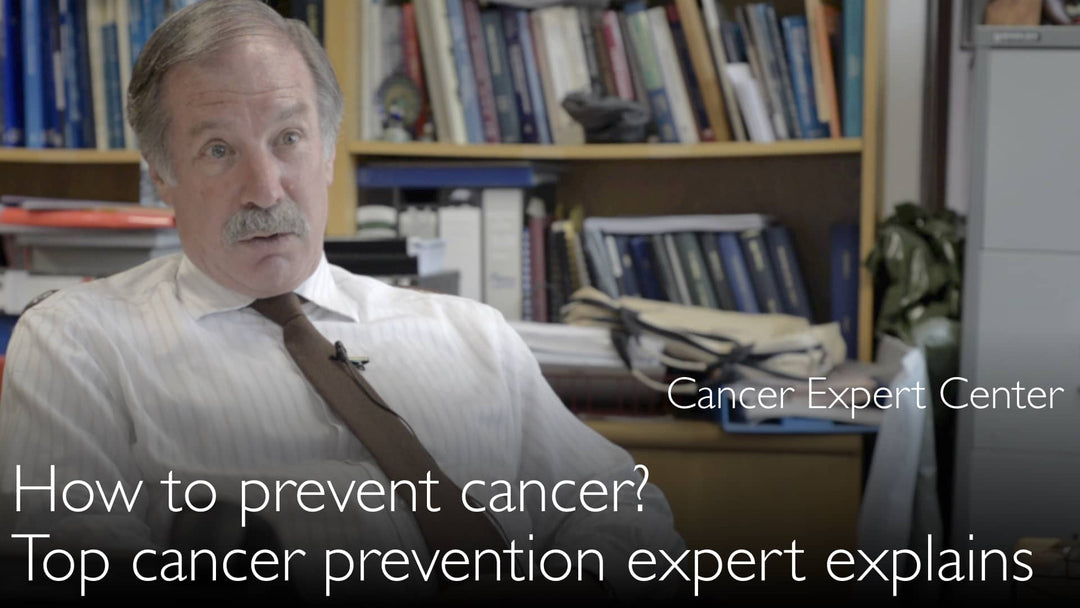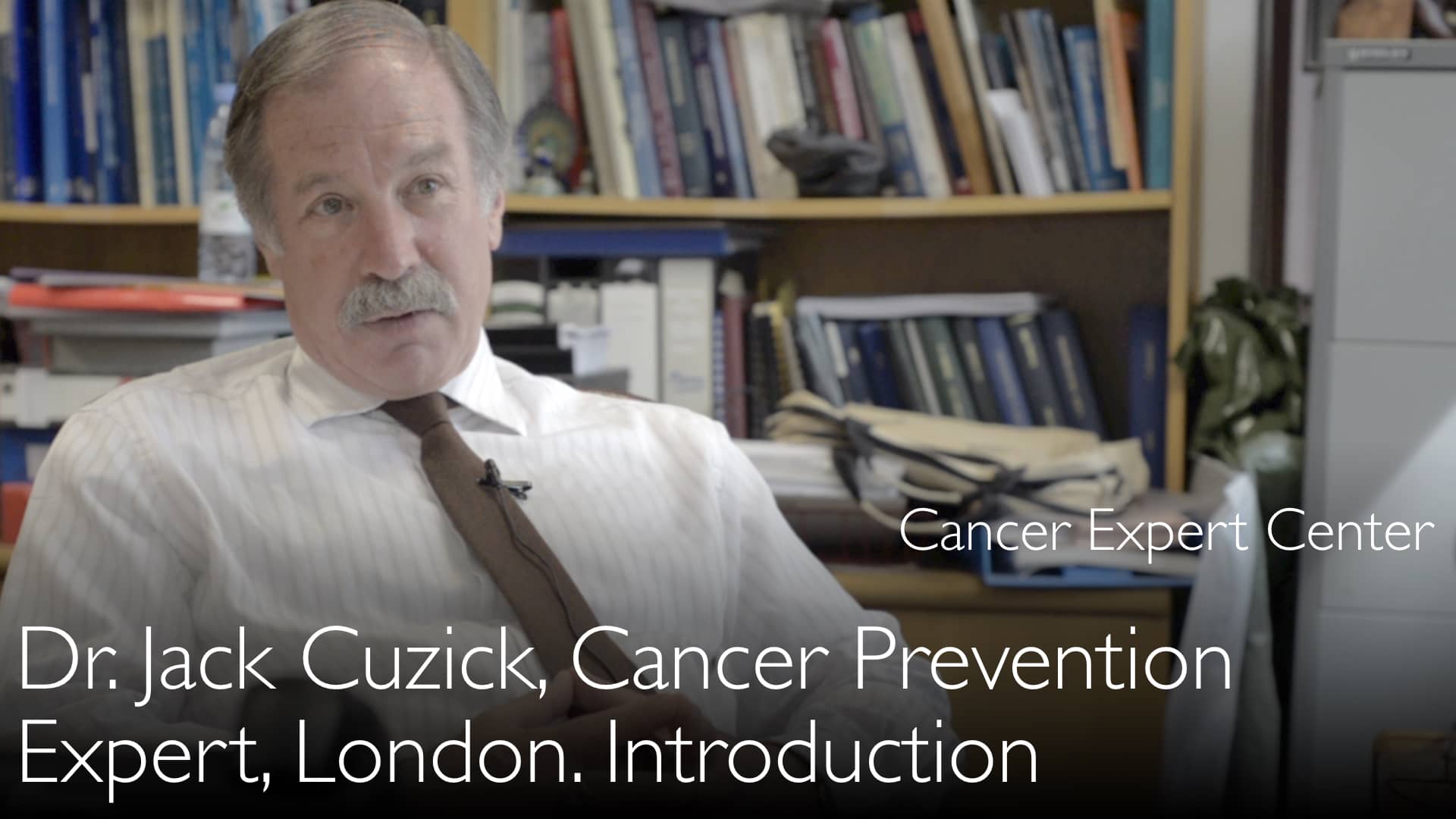Le Dr Jack Cuzick, MD, PhD, expert de renommée mondiale en prévention du cancer, dévoile des stratégies éprouvées pour réduire les risques : arrêt du tabac, contrôle du poids, activité physique et usage de l’aspirine. Il aborde également les limites des compléments alimentaires et le rôle nuancé du dépistage.
Stratégies efficaces de prévention du cancer : approches fondées sur les preuves pour réduire votre risque
Aller à la section
- Arrêt du tabac : la cause évitable la plus importante
- Gestion du poids et activité physique
- Le rôle crucial de la maîtrise de la consommation de sucre
- Valeur et défis du dépistage du cancer
- Aspirine en prévention du cancer : une opportunité majeure
- Facteurs alimentaires et mythes sur les compléments
- Alcool et viande rouge : comprendre les risques
- Une approche équilibrée de la prévention du cancer
Arrêt du tabac : la cause évitable la plus importante
Le Dr Jack Cuzick, MD, PhD, identifie le tabagisme comme la principale cause évitable de cancer. Il observe que la réduction spectaculaire du tabagisme dans les pays développés a directement entraîné une baisse significative de l’incidence du cancer du poumon. Le Dr Cuzick souligne que l’arrêt du tabac est absolument essentiel à toute stratégie efficace de prévention du cancer.
Gestion du poids et activité physique
Au-delà du tabac, le Dr Cuzick met en lumière les preuves claires liant l’obésité à un risque accru de cancer. Il conseille d’éviter l’obésité et de maintenir une activité physique, notant que les personnes qui font régulièrement de l’exercice développent moins de cancers que les autres. Il souligne également que, malgré l’importance de l’amélioration du mode de vie, les efforts de santé publique ont largement échoué à enrayer l’épidémie d’obésité.
Le rôle crucial de la maîtrise de la consommation de sucre
Au Wolfson Institute of Cancer Prevention à Londres, le Dr Cuzick et ses collègues se concentrent sur le contrôle de l’apport en sucre. Il identifie le sucre comme une cause majeure d’obésité, de diabète, de cancer et de maladies cardiovasculaires. Selon lui, trouver des moyens de limiter la consommation de sucre est un défi de santé publique récent mais vital, qui mérite davantage d’attention.
Valeur et défis du dépistage du cancer
Le Dr Cuzick confirme l’efficacité et l’importance du dépistage du cancer. Il cite des preuves solides en faveur du dépistage du cancer du col de l’utérus, du sein et colorectal. Cependant, le dépistage du cancer de la prostate présente un défi particulier : s’il permet probablement de prévenir la maladie, le problème du surtraitement a conduit de nombreux experts à recommander d’attendre une meilleure compréhension de la prise en charge des lésions précoces avant de généraliser son usage.
Aspirine en prévention du cancer : une opportunité majeure
Le Dr Cuzick évoque l’utilisation de l’aspirine comme stratégie majeure de prévention. Il déplore le manque d’efforts pour promouvoir son usage à cette fin, alors que des preuves suggèrent qu’elle pourrait réduire de 10 % l’incidence et la mortalité globales par cancer. Il y voit une avancée potentielle considérable et estime qu’un défi clé pour l’avenir proche est de mettre en œuvre des stratégies dont l’efficacité est déjà établie.
Facteurs alimentaires et mythes sur les compléments
Le Dr Cuzick explique que la compréhension des facteurs alimentaires spécifiques dans la prévention du cancer reste limitée. Il cite de vastes essais cliniques ayant infirmé l’idée que la vitamine A, le bêta-carotène, la vitamine E ou le sélénium pourraient prévenir le cancer. Certains compléments, comme la vitamine A chez les fumeurs, se sont même avérés légèrement nocifs, et la supplémentation en vitamine E et en sélénium dans l’essai SELECT a augmenté certains cancers.
Alcool et viande rouge : comprendre les risques
Il existe des preuves que les viandes rouges et transformées sont associées à un risque accru de cancer colorectal, bien que le Dr Cuzick note que l’effet global reste faible. L’alcool est également une cause connue de certains cancers. Il suggère que, même si une société sans alcool est improbable, en limiter la consommation est judicieux pour la santé globale et la prévention du cancer.
Une approche équilibrée de la prévention du cancer
Le Dr Cuzick conseille de ne pas laisser la prévention du cancer devenir une obsession, soulignant l’importance de profiter de la vie. Son approche personnelle consiste à identifier et respecter les stratégies majeures ayant un impact prouvé, à éviter les comportements cancérigènes, puis à vivre le reste de sa vie aussi heureusement que possible. Au cours de sa conversation avec le Dr Anton Titov, il a également contextualisé l’augmentation des taux de cancer : les succès dans la prévention des maladies cardiovasculaires permettent aux gens de vivre assez longtemps pour développer d’autres affections, comme le cancer. Le but, conclut-il, est de retarder l’apparition de la maladie le plus longtemps possible.
Transcription intégrale
Dr Anton Titov, MD : Vous êtes l'un des plus grands experts mondiaux de la prévention du cancer. Comment prévenir le cancer ? Comment minimiser et diminuer les risques de développer un cancer ?
Dr Jack Cuzick, MD : C'est une question intéressante. Nous savons très clairement que la cause évitable de cancer la plus importante est le tabagisme. Il y a eu des améliorations spectaculaires dans le monde développé dans la réduction du tabagisme. Cela a montré des réductions spectaculaires de l'incidence du cancer du poumon. Donc, l'arrêt du tabac est crucial pour toute prévention du cancer.
Dr Anton Titov, MD : Le tabagisme, nous le savons, est une cause majeure de cancer. Existe-t-il d'autres mesures pour prévenir le cancer ?
Dr Jack Cuzick, MD : Nous n'avons pas de preuves aussi claires pour elles. Mais il existe des bénéfices clairs pour plusieurs autres stratégies de prévention du cancer. Évitez l'obésité. Restez physiquement actif. Il existe des preuves claires que l'obésité est associée au cancer. Il existe des preuves claires que les personnes physiquement actives développent moins de cancer que celles qui ne font pas d'exercice régulièrement. Donc, nous pouvons être assez certains que ces choses sont importantes.
Comment améliorer le mode de vie d'une personne est un domaine majeur de préoccupation. Je pense que nous avons très mal réussi à éviter l'épidémie d'obésité. L'obésité est un problème majeur de santé publique. Ici, au Wolfson Institute of Cancer Prevention à Londres, nous travaillons à contrôler la quantité de sucre que nous autorisons dans notre alimentation. Le sucre est une cause majeure d'obésité, de diabète, de cancer et de maladies cardiovasculaires. Nous devons donc faire plus pour contrôler l'apport en sucre.
Je pense que c'est un problème récent. Nous devons trouver des moyens de contrôler la consommation de sucre. Rester physiquement actif est bon pour une série de maladies. Le cancer n'en est qu'une. Si vous restez physiquement actif, vous vous sentez mieux, et les maladies cardiovasculaires sont également réduites. Donc, je pense que c'est utile.
Le dépistage du cancer est important. Nous savons que le dépistage du cancer fonctionne. Il existe des preuves très claires que le dépistage du cancer du col de l'utérus, du cancer du sein et des cancers colorectaux est important. Le dépistage du cancer de la prostate est un défi. Il prévient probablement la maladie. Mais nous avons ce défi majeur du surtraitement du cancer de la prostate.
Ce problème a conduit de nombreux médecins et chercheurs à dire que nous ne sommes probablement pas prêts à dépister le cancer de la prostate systématiquement tant que nous n'aurons pas une meilleure compréhension du traitement des lésions précoces. C'est probablement la stratégie majeure de prévention du cancer.
L'autre stratégie majeure de prévention du cancer est l'aspirine. Nous ne faisons pas beaucoup pour promouvoir l'utilisation de l'aspirine pour la prévention du cancer. Une réduction de 10 % de l'incidence et de la mortalité globales par cancer grâce à l'aspirine serait un énorme pas en avant. Nous semblons avoir les moyens de le faire.
Je pense qu'un de nos défis pour le futur proche est de faire fonctionner les stratégies de prévention du cancer pour les choses dont nous savons qu'elles fonctionnent. En termes de régime alimentaire, je pense que nous sommes encore loin d'une compréhension claire. Nous savons que trop manger et devenir obèse est une mauvaise idée pour la santé. Mais toutes ces idées sur des aspects spécifiques de l'alimentation n'ont pas vraiment abouti à réduire le cancer.
Il y avait une croyance que la vitamine A et le bêta-carotène pourraient prévenir le cancer. De grands essais cliniques ont été menés chez des personnes à haut risque de cancer du poumon à cause du tabagisme. La vitamine A n'a eu aucun bénéfice pour la prévention du cancer du poumon. La vitamine A a eu un effet légèrement nocif sur les risques de cancer du poumon.
Plus récemment, il y a l'essai clinique SELECT aux États-Unis. Cet essai clinique a étudié la vitamine E et le sélénium comme stratégie de prévention du cancer. L'épidémiologie suggérait que le sélénium et la vitamine E pourraient réduire le cancer. Mais la supplémentation alimentaire en vitamine E et en sélénium n'a pas conduit à une réduction du cancer. En fait, elle a augmenté certains cancers.
Donc, notre compréhension des facteurs alimentaires spécifiques importants est vraiment assez limitée. Il existe également des preuves que la viande rouge est associée au cancer rectal. Les viandes transformées peuvent augmenter le risque de cancer colorectal. Mais encore une fois, c'est un effet très faible dans l'ensemble.
L'alcool cause certains cancers. Il y a une vraie question sur les niveaux auxquels vous réduiriez la consommation d'alcool. Je ne pense pas que nous allions devenir une société sans alcool. Mais certainement, limiter votre consommation d'alcool est très judicieux.
Nous ne voulons pas que la prévention du cancer devienne une obsession. Clairement, profiter de la vie est important. Mais il est important de ne pas faire des choses qui peuvent avoir des impacts négatifs majeurs pour que vous ne puissiez pas profiter de votre vie.
Donc, mon point de vue personnel est celui-ci : vous découvrez les stratégies majeures de prévention du cancer. Vous faites certaines choses qui ont un impact sur le cancer. Vous essayez d'éviter les actions cancérigènes. Et puis vous vivez le reste de votre vie aussi heureusement que possible !
Dr Anton Titov, MD : Macmillan Cancer Support estime que près de 50 % de toutes les personnes auront un cancer au cours de leur vie. Vous êtes une autorité majeure en prévention du cancer. Y a-t-il autre chose que vous aimeriez ajouter à notre conversation ?
Dr Jack Cuzick, MD : Je pense qu'il y a plusieurs raisons pour lesquelles le cancer devient plus fréquent en pourcentage de la population. Parce que nous avons eu de très grands succès dans la prévention des maladies cardiovasculaires. Les gens meurent finalement et attrapent une maladie. Donc, regarder simplement la proportion de la population qui développe un cancer n'est pas toute l'histoire.
Il est important de retarder les maladies le plus tard possible. Nous allons tous mourir à un certain stade. Donc, nous n'allons pas devenir complètement exempts de cancer. Mais avoir un cancer à 90 ans est moins problématique qu'à 40 ou 50 ans.
Dr Anton Titov, MD : Professeur Cuzick, merci beaucoup pour cette conversation très intéressante. Nous attendons avec impatience de continuer à voir les résultats de vos essais cliniques internationaux et votre leadership ! Merci beaucoup !





